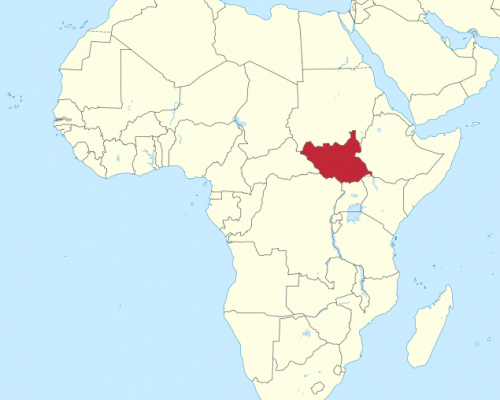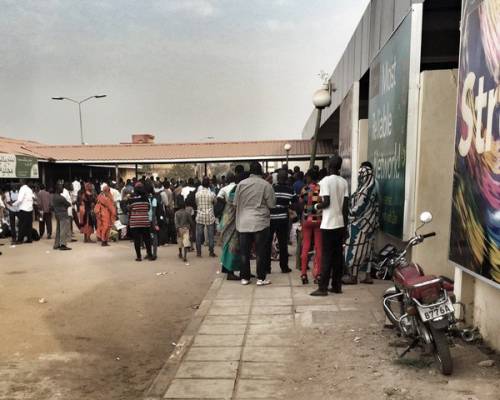South Sudan remains fragile
29 March 2016 - RPS Partnership
RPS has a consultant travelling to South Sudan in April so if you have any travel concerns or require advice or training please do not hesitate to get in touch on [email protected]
Today we are bringing you some updates and interesting information on South Sudan from our advisory consultant based in West Africa.
Peace Process - general observations
Peace Agreement (PA) was signed August, 2015. The peace accord ended 2 years of fighting, mostly along ethnic lines. However, numerous breakdowns and violations by both sides have taken place over the past 6 months. There have been recent attacks in Malakal & elsewhere which all highlight the ongoing insecurity in South Sudan.
The PA should have been complete Jan 2016 with the formation of the Transitional Government, however the process is tracking at least 2 months behind schedule.
The PA has also been severely hampered by the President increasing the number of States / Provinces from 10 to 28. This has created another barrier to peace and another significant area of dispute, and potentially conflict. This decision is about control, meaning of both territory and oil resources.
Dr. Riek Machar, was reinstated by President Salva Kiir (11th Feb, 2016) to his former role as VP.
Two main factors in the implementation process are currently ongoing:
- demilitarisation of Juba
- movement of SPLM-in Opposition (IO) forces to Juba
These 2 conditions will allow for the safe return of Machar and the formation of the Transitional Government.
The demilitarisation of Juba appeared to be ongoing, however, both sides continue to make claim and counter claim of the speed and veracity of the process. Essentially, all Juba Government forces should move 25 kms outside Juba – lack of housing / barracks and logistics are limiting factors.
Machar has been going to arrive in Juba for the past 2 weeks. His "people" have sent an advance party of approx. 150 - 200 persons to Juba at the end of Dec 2105. Taban Deng Gai, Machar’s No 2 and lead negotiator, is leading this group. They are set to occupy a number of hotels in Juba with the main grouping based at the Landmark Hotel.
IO will move around 1,400 of its forces to Juba to match the GOSS numbers once demilitarisation is complete. This will include 600 police and bodyguard (s) for Machar. The international community will provide logistics. The speed of both conditions being met is frustrating all parties, including the international community.
Summary of the Peac e Process
It seems likely that the peace process will be finalised during the coming weeks, possibly by end March. The ‘end game’ means the eventual return of Machar and the formation of a new Government. Juba remains in a ‘wait & see’ mode.
The breakdown of the new Government is ever up for debate but looking likely that it will be a 26-person cabinet. 16 Government, 10 positions to IO. Finance will remain with Government, the other key Ministry - Petroleum & Mining - will move to IO. It’s considered 90% certain Taban Deng will become its new Minister. He is a twice-former Governor of Unity State, one of the two main oil producing States.
The rumour mill grinds that neither side is particularly keen on this process, in particular the Government. Considerable international pressure, including financial ‘blackmail’, and the fact the country is completely broke means there are limited options. The economy has totally collapsed driven by 3 factors:
- the oil price – the Government is currently only taking 0.80 cents per barrel profit on production of ~165,000 bpd
- devaluation of the currency in Dec 2015
- complete financial mismanagement
When the Transitional Government finally forms, will peace endure? The peace process is no panacea and largely borne out of necessity.
Being cynical....All that’s really happened is a bad movie has been rewound (to pre Dec 2013). The same actors remain, but with increased hatred and mistrust on both sides.
South Sudan is expected to continue to be a challenging environment with flashpoints and difficulties along the way.
Security in South Sudan
The overall security situation in South Sudan has improved since the last time our consultant was there in Sept 2015. The situation seems less tense and Juba appears calmer with fewer serious incidents being reported.
Checkpoints remain in place during silent hours with most internationals and locals observing a 2100 hrs curfew. In fact, many prefer to be at their place of residence by last light (1900 hrs).
The demilitarisation process has probably help ease tension. There are less sightings of military and weapons compared to 4 months ago.
A late morning visit to the headquarters of the IO rebel movement at the Landmark Hotel was another good indicator. Security seemed relaxed during the day and not what was expected. The negotiating team from IO arrived in Juba 30th Dec and have completed 2-months, without major incident.
Countrywide security
The countrywide security situation is reported as generally calm, with the exception of widely reported recent fighting in the PoCs which have been widely condemned internationally, including the UN Secretary General during Feb 2016 visit to South Sudan.
In wider Upper Nile reports from various NGO Security Advisors suggest most areas are calm with only sporadic outbreaks of violence. Increasingly these are linked with a more familiar pattern of life / violence – meaning disputes over grazing rights, water, cattle theft etc.
Summary of the security situation
The security situation will likely continue to remain fragile for the foreseeable future. The current ‘wait and see’ phase may well last a number of weeks. Machar has been due to come to Juba for the past 2 – 3 weeks and yet to arrive.
Dec 15th, 2013 erupted out of nowhere and was unforeseen by all. Within hours an ethnic war had erupted within Juba with Nuer being killed in hotels, their houses, and places of work. Most of the Nuer scattered and escaped Juba, initially either to Khartoum, the Juba UNMISS PoC camp (where many still remain) or to Pagak (southern Upper Nile, bordering Ethiopia). Many lost everything including vehicles, personal possessions, money, even land and houses. A burning resentment for retribution remains with some.
Another full-blown conflict could happen again and start from seemingly nothing. It is worth bearing this in mind if planning to travel there.
Another key indicator that could impact the security situation is the dire financial situation now facing the country. South Sudan is bankrupt. The government has no money. Ironically this has helped drive the peace process, in that both sides have no way out. The currency (SSP) has lost 90% of its value since Dec. The government is now awarding 300% pay rises in the public sector to help stem potential revolt, but risk fueling inflation.
There is some evidence that the constant devaluing and tracking the black market is working. Over the past week the exchange rate has stabilised, but there remains a chronic shortage of hard currency.
If you plan to travel to South Sudan, please contact us for advice, training and support. The lack of infrastructure and medical facilities means that all travellers need to be self sufficent and have emergency first aid training. Good contingency planning is essential for the reasons given above. Please do get in touch on [email protected]
Photos: with thanks to concordis.international and @roadrunnertns



